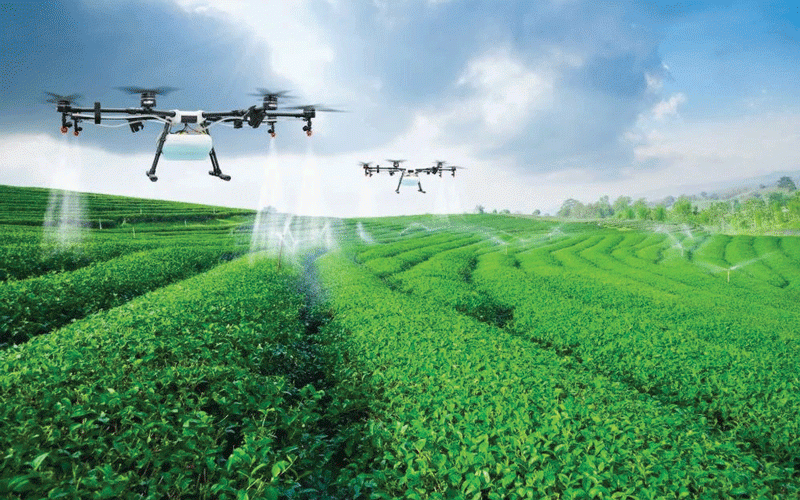
INNOVATION has made life much easier for human beings.
In farming, mechanisation has reduced the number of workers a farmer requires.
Innovation has significantly reduced time spent working in the fields.
Appetite for new technologies continues.
Every year, new farming techniques are introduced to increase production.
Drone technology has become an important part of farming in Zimbabwe.
It has brought precision to farming with far much better results.
For starters, drones are being used to map farming areas, with the information used to do land use planning.
- Feature: Model shift: Climate change forces Zim to finally take up irrigation
- New twist to CSC, Boustead Beef saga
- Coping with drought through WFP’s resilience programme
- Feature: Tapping into insect farming to clear Zim’s urban waste
Keep Reading
The greatest advantage of drones is that in a single scan they can give information like topography, soil types, humidity, tree density and much more.
Jeremiah Musabayana, an entrepreneur, who has been pushing for drone technology in farming, says crop and animal husbandry farmers have seen yields grow because they are able to monitor operations much better through drones.
"We are happy with what is happening on the ground. We have been able to improve because we have gotten to know what the farmer really needs,” he said.
"For example, we have the AGRAS T40, which is equipped with the revolutionary Coaxial Twin Rotor design, enabling it to carry a spray load of 40kg and a spread load of 50kg.
“The aircraft is built with a dual atomised spraying system, DJI terra, active phased array radar and binocular vision. It supports multiple missions from surveying, mapping and to spraying and spreading, helping you achieve ultimate precision in agricultural operations," Musabayana said.
He said the drone are important because crops like maize, tobacco and wheat are difficult to spray with the traditional boom sprays once they reach a certain height. The AGRAS T40 therefore came as an over-the-top solution.
Musabayana added: "We also have SenseFly eBee Ag that captures accurate RGB and multi-spectral data from the sky to help you make better decisions on the ground.
“Regularly collecting multispectral data is critical to effectively assess crop health, optimise inputs use and help catch early indicators of pests, diseases and weed infestations that threaten crop yields.
“These are just two of the many products we have. We have so much more and we are not stopping on the research front because agriculture grows every day and there is a need to diversify every day."
The drones can report moisture and heat stress.
Musabayana said the biggest hurdle was market acceptance.
But they have gone over that.
What is more exciting is that his company
Drone Solutions Academy has been licenced by the government to conduct relevant training.
The Ministry of Lands, Agriculture, Fisheries, Water, Climate and Rural Development has set up most of its agriculture extension services officers for training at the academy so that they can easily access many places in their areas of supervision.
The same has been done to the veterinary service officers.
"Drones have made farming much easier. Very soon we will be sending medication for cattle in the rural areas with these drones. In fact in some areas we are actually doing so under pilot projects," Musabayana said.
- Gwabanayi is a practising journalist and a farmer in his own right. — 0772 865 703 or gwabanayi@gmail.com










